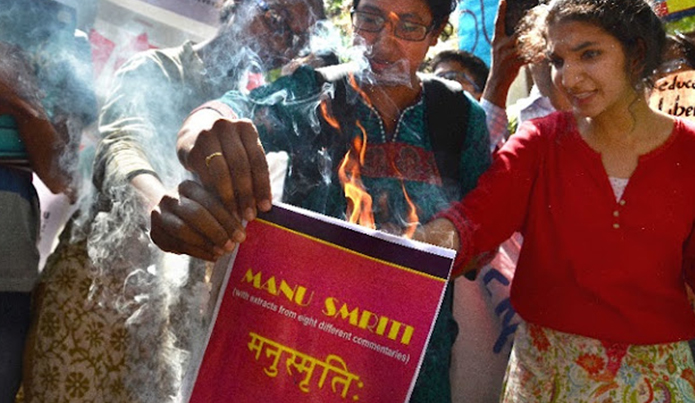Hathras reflects Manu’s mindset dominates: ‘Women are false, it’s in their nature to seduce’

It was a sunny summer morning in 2017. Self Help Group (SHG) members of Jana[1] congregated beneath the tamarind tree, their usual meeting place. Some men also were sitting there and the SHG members were taking loan to purchase inorganic fertilizers and hybrid seeds. They were discussing whether they would go for the indigenous variety of crops that they had been growing in previous years. When enquired they informed that some seed company representatives came and shared with them about the ‘benefits’ of using hybrid seeds. They also recommended following a package of practice (POP) which included using inorganic fertilizers and pesticides. As the costs were high they needed to take loan from the SHG. Some older villagers shared their concern over the increasing trend of using hybrid seeds along with inorganic fertilizers among the younger generation. Pitu Bhagat, a man in his 40s stood beside the tamarind tree and stated with pride “hum log abhi standard khana kha rahe hain, madwa bagera abhi khana nahi padta” (Translation: we are now taking standard food, we don’t need to take finger millet kind of things anymore); but one old person from that group confronted Pitu saying, “Nahi, hum abhi zahar kha rahe hai, ise humara zindegi chhota ho raha hai or taqat bhi ghat gaya” (Translation: No, we are now eating poison and for that our lifespan is reducing with deprived health condition).
Like any other Adivasi villages in Jharkhand, Jana also had a rich traditional agriculture system, a large variety of crops, seed storage systems along with regenerative agriculture practices. With the growing emphasis on modern agriculture, representatives from various seed and pesticide companies, Govt. and civil society organisations (CSOs) started influencing the villagers. The traditional systems started getting replaced by inputs and POPs provided by them fuelling a phenomenon known as deskilling in agriculture (Vandeman, 1995).

